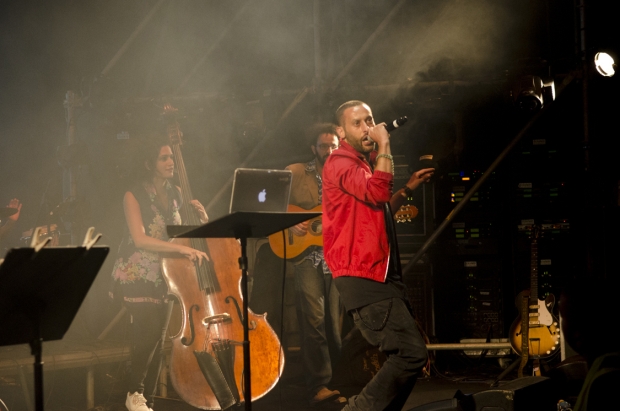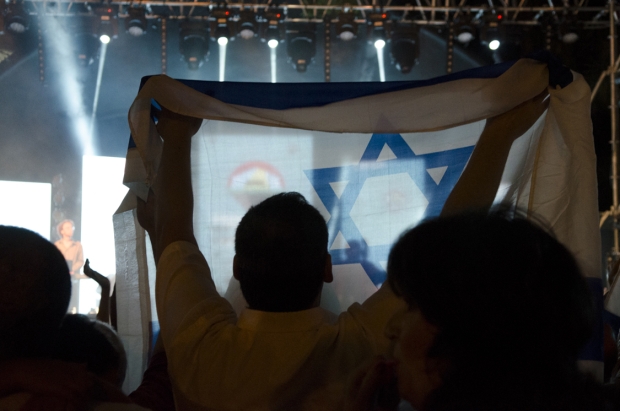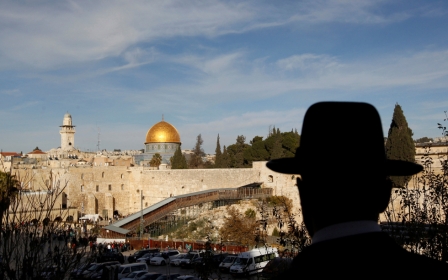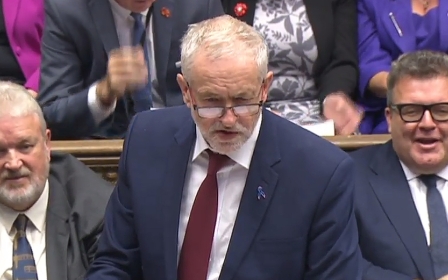Rapper Tamer Nafar to play Haifa Film Festival despite controversy
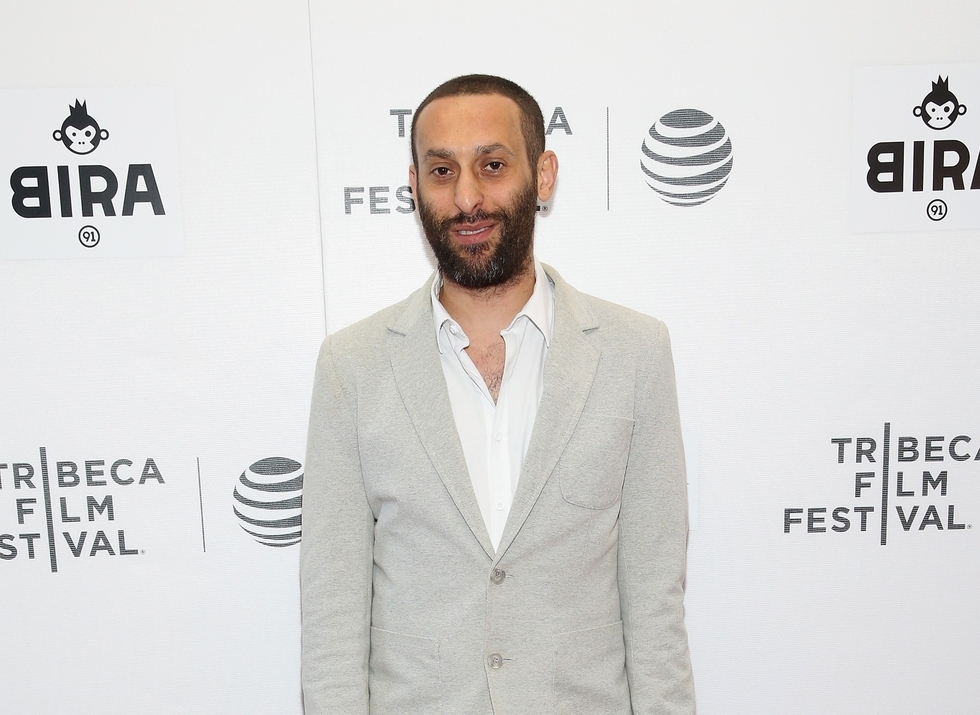
Palestinian rapper Tamer Nafar was set to perform, as planned, on Tuesday evening at the opening of a community theatre festival in Haifa running in conjunction with the annual Haifa Film Festival.
The performance takes place despite the controversy provoked by the Israeli Culture Minister Miri Regev earlier this week.
On Sunday, Minister Regev called on Haifa Mayor Yona Yahav to cancel Nafar’s performance, claiming Nafar’s words served to legitimise "terrorism" and undermine the State of Israel.
"[It] is unfortunate that a festival like the Haifa Film Festival, which has become a symbol of quality and of bringing peoples and countries together, is choosing to provide a platform for an artist like Nafar, who chooses at every opportunity and before every possible audience to oppose the idea of the State of Israel and its existence as a state for the Jewish people," she said in a statement.
For a moment it seemed as though the mayor would submit to Regev’s demand.
“The municipality announced that I had cancelled the show,” Nafar told Middle East Eye.
“They didn’t have the courage to say they wanted to call it off.”
But Nafar fought back. In a strongly-worded Facebook post, the musician called the city out for succumbing to the pressure of the culture minister and her “pack of racists”.
“I have no intention of letting them silence me and I look forward to seeing everyone in Haifa on Tuesday," he said in response to the announcement.
Eventually Haifa Municipality agreed to allow the popular rapper’s performance to take place.
'They want to erase Palestinians that dare take a stand'
This was not the first time Regev had criticized Nafar.
During last month’s Ophir Awards ceremony in Ashdod (known as the “Israeli Oscars”), Regev walked out in protest during a performance by Nafar and Jewish artist Yossi Zabari. The duo staged a performance during which they recited part of a poem by renowned Palestinian poet Mahmoud Darwish, entitled Write it down, I am an Arab.
“They want to erase all Palestinians that dare take a stand and instead turn us into good ‘house Arabs,'” Nafar concluded.
As culture minister, Regev has developed a reputation for cracking down on Palestinian cultural projects.
Following her appointment to the ministry in 2015, the Likud party politician suspended the ministry’s funding to the Palestinian Al-Midan Theatre in Haifa.
This decision followed the outcry over Al-Midan’s play A Parallel Time, written and directed by Bashar Murkus. The play was partially based on writings by Palestinian political prisoner Walid Daka, convicted to life in prison for his involvement in the killing of an Israeli soldier in 1984.
In 2012 Regev referred to undocumented Sudanese immigrants in Israel as “a cancer in our body”, and she's targeted everyone from the Ashkenazi elite in Tel Aviv to the Attorney General.
'Who’s the terrorist?'
Tamer Nafar’s musical career began in the late 1990s. Together with Suheil Nafar and Mahmoud Jreri he established DAM, the first Palestinian hip hop band.
Their creative style of mixing Arabic rhythm and melodies with urban hip hop turned out to be a huge success and set off a new trend among young Palestinians.
The band shot to fame after the release of their song “Min Irhabi” (Who’s the terrorist) in 2001. The lyrics of this song are a major source of Regev's indignation.
"A minority that ends up as a majority in the cemetery / Democracy? Why? It reminds me of the Nazis / You've raped the Arab soul and it became pregnant, giving birth to a child called ‘terror attack’ / And then you call us terrorists.”
Regev claimed these words “legitimise terrorism”. Nafar says he is not willing to be silenced.
Having grown up in Lod, a mixed Arab-Jewish city just south-east of Tel Aviv, Nafar and his fellow band members are part of the almost 1.5 million Palestinians who are citizens of Israel.
Although these Palestinians have often been portrayed by Israel as enjoying a higher standard of living than those living in the West Bank or Gaza, the community has frequently suffered discrimination.
Instead of giving in to provocations, Nafar and his fellow band members said they had decided to use their creative talents in order to share their stories and help others do so as well.
New MEE newsletter: Jerusalem Dispatch
Sign up to get the latest insights and analysis on Israel-Palestine, alongside Turkey Unpacked and other MEE newsletters
Middle East Eye delivers independent and unrivalled coverage and analysis of the Middle East, North Africa and beyond. To learn more about republishing this content and the associated fees, please fill out this form. More about MEE can be found here.


